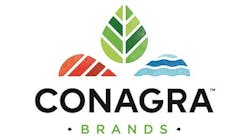Both Nestlé SA and Unilever PLC continue to give financial analysts hints that the global consumer packaged goods giants are interested in selling off slow-growing food & beverage businesses in order to develop and acquire operations in nonfood categories with greater potential.
In the past month, Unilever sold a majority stake in its Slim-Fast brand to private equity firm Kainos Capital, although Unilever will retain a minority stake in the business. Earlier this year, its Wish-Bone and Western salad dressings went to Pinnacle Foods, the Ragú and Bertolli pasta sauces to Mizkan Group and its Meat Snack Business to Jack Link's. Skippy peanut butter sold to Hormel last year, and the promising Bertolli and P.F. Chang’s frozen meals businesses were bought by ConAgra in 2012.
However, Kees Kruythoff, president of Unilever North America, said: “The Slim-Fast sale is the last step in the portfolio reshaping that we had planned for North America. This transaction, along with previously announced divestitures, will give us the focus to drive growth behind our core portfolio.”
At the Deutsche Bank Conference in Paris June 18, one of CFO Jean-Marc Huët's slides read, "Reducing our dependency on foods." A bar chart, titled "More personal care weighted," showed food at 46 percent and personal care at 24 percent in 2009, and now the split is 36 percent food and 33 percent personal care.
Look at what Nestle's been selling and buying. In the past month, Nestle sold its Juicy Juice brand to Brynwood Partners, a buyout firm that also purchased the company's Bit-O-Honey, Joseph's Pasta Co. and Flipz brands. PowerBar and Musashi brands went to Post Holdings earlier this year, and the Jenny Craig business to North Castle Partners.
Instead, the Swiss company this year created Nestlé Skin Health SA to pursue "the field of specialised medical skin treatments," filling it first with the 50 percent stake in Galderma it didn't already own (L’Oréal held the other half) and more recently with Valeant Pharmaceuticals' rights to several key injectable aesthetic dermatology products.
"We will divest certain businesses or subcategories of certain businesses," CEO Paul Bulcke told the company's June investor seminar in Boston. "We will not allow problems to drag on."
In the background was the Nestle motto: "Good food, good life."

